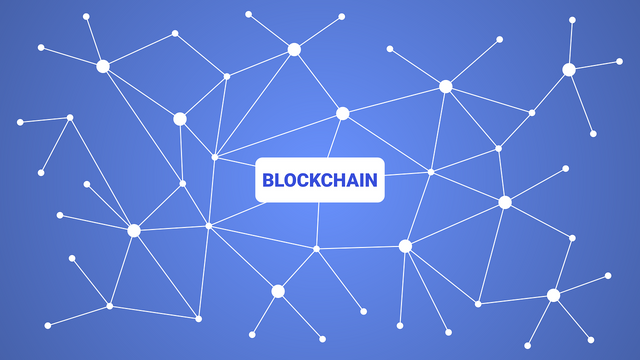The Benefits Of Blockchain Technology To Health Care System
Hello crypto friends,
Introduction
The block chain technology as we all know has emerged as a transformative and innovative force in various industries where it is implemented offering innovative and evolutionary solutions to longstanding challenges.
In regards to the healthcare sector or industry,if implemented the block chain holds immense potential to revolutionize processes, enhance data security, and improve patient outcomes.
Advantages Of Blockchain Technology To The Health Sector
In this post of mine I will be exploring and capturing several key and significant advantages of the block chain technology to the healthcare system, elucidating and also discussing how it can facilitate secure data sharing, streamline administrative processes,w improve patient privacy, combat counterfeit drugs, and empower patients with greater control over their health data.
- Streamlined Administrative Processes
In it's innovation the block chain technology offers opportunities to streamline administrative processes and reduce inefficiencies in healthcare operations inefficiencies of which may be in the aspect of processing of bills and claims processing, and supply chain management.
The block chain technology has in its arsenal smart contracts which are self-executing agreements coded and programmed on the block chain, it enables and allows automated and transparent execution of administrative tasks.
By automating the routine and processes that makes the administrative tasks and eliminating intermediaries an middle men the block chain can reduce administrative overhead as well as minimize errors, and finally improve the efficiency of healthcare systems,while lowering the costs and improving patient care.
- Enhanced Patient Privacy
Also the block chain technology enhances and improves patient privacy and data security by enabling and allowing patients to retain ownership and control over their health data and information.
Through the use of cryptographic techniques such as public-key encryption and thr decentralized identity management, block chain technology empowers patients with the choice to share their health information selectively and anonymously while preserving and maintaining confidentiality and privacy.
By giving patients the upper hand and greater control over who can access their health data and information and on what grounds or for what purposes, block chain technology promotes trust and transparency in healthcare transactions and as a result fostering stronger relationships between patients and providers and empowering individuals to manage their health information appropriately.
- Increasing Patient Control
The block chain technology empowers and provides patients with greater control over their health data and information as well as enabling them to access, manage, and choose to share their medical records securely and transparently.
Through the block chain based health information exchanges (HIEs) and personal health record (PHR) systems, patients are now able to get the aggregate of their health information from multiple health care centers and sources.
By providing patients with control and access permissions and sharing preferences, patients now have the choice to grant or revoke their consent to healthcare providers, researchers, and other parties requesting to access their data and as a result empowering individuals to make informed decisions about their health and wellness.
- Reducing Risk Of Counterfeit Drugs
Counterfeit drugs pose a significant threat to the health car system, patient safety and public health, most especially in countries that are still developing, and with lax regulatory oversight and weak or no supply chain controls.
Block chain technology offers a solution to this threat and risk of counterfeit drugs by providing a transparent and immutable tracking system and protocol of all the pharmaceutical products throughout the supply chain.
By transparently recording every transaction and movement of drugs on an immutable ledger, the block chain, from manufacturing to distribution to dispensing of medication and pharmaceutical products the block chain enables and allows stakeholders and authorized personnel to verify the authenticity and provenance and detect counterfeit products hence mitigating the risk of counterfeit.
- Secure Data Sharing
Another benefit and one of the primary advantages of the block chain technology in the sector of healthcare is its ability to enable and facilitate secure and transparent data sharing among stakeholders, including patients, healthcare providers, insurance officers and medical researchers.
The block chain's distributed ledger technology and functionality enables and allows encrypted and immutable storage of healthcare data, ensuring its integrity and confidentiality and also permanence.
By utilizing and capitalizing on the cryptographic techniques and permissioned access controls, block chain platforms enable granular data sharing permissions and as a result allowing only authorized parties to access and exchange patient health records securely.
CONCLUSION
conclusively, as proven above the block chain technology offers numerous advantages to the healthcare system to mention a few, including secure data sharing, streamlined administrative processes, improved patient privacy, enabled medical research, combatting counterfeit drugs, and empowering patients with greater control over their health data.
By leveraging block chain solutions and applying the block chain technology, healthcare organizations can enhance efficiency, transparency, and accountability in healthcare delivery, and finally improving patient outcomes and advancing the future and growth of the healthcare industry.



Twitter share
https://twitter.com/Saintkelvin18/status/1766483432035541374?t=dd7jgVaeEIwJ9E1k32wFjg&s=19
Note:- ✅
Regards,
@theentertainer
Once again thanks sir
Thank you sir